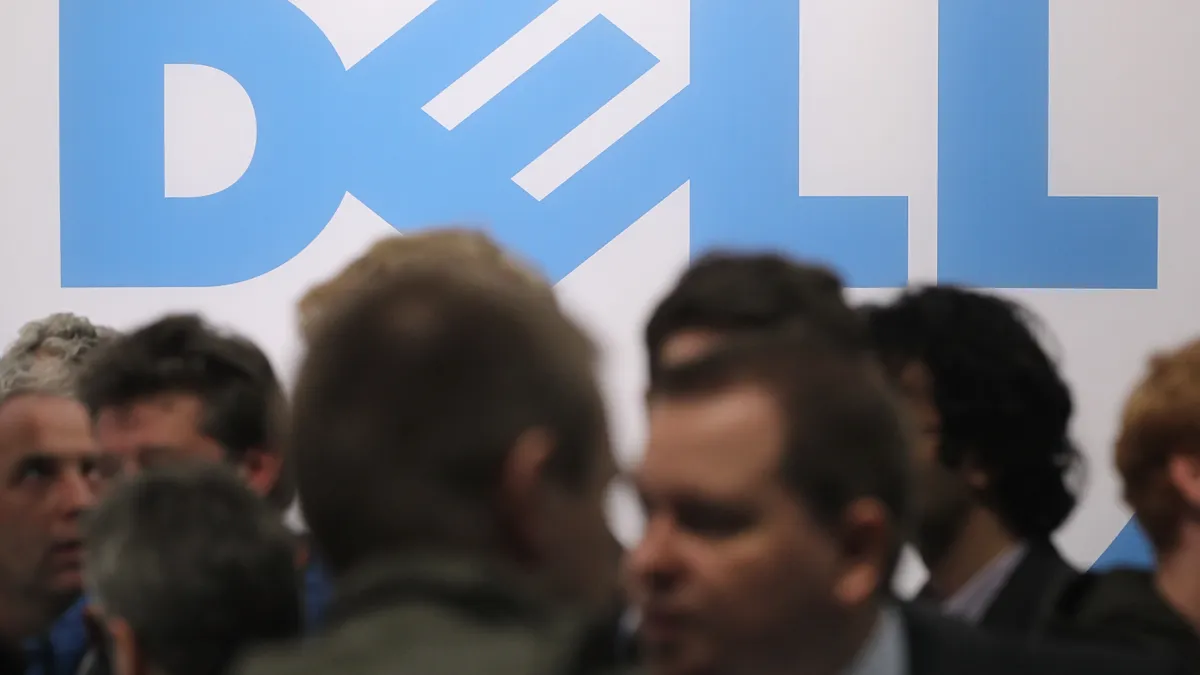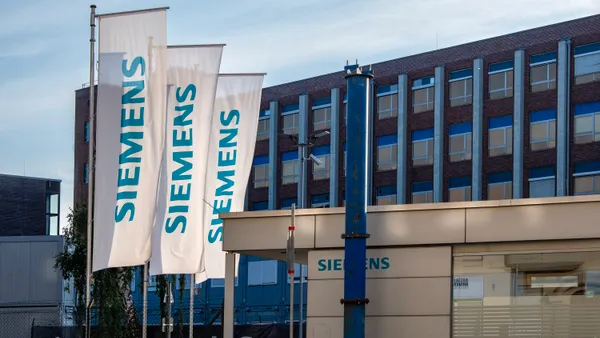Dive Brief:
- Dell is considering a "reverse-merger," where the $60 billion-valued VMware would buy Dell, according to a CNBC report based on conversations with sources. The deal would allow Dell to become a public company without listing publicly and is one of the more "audacious" strategies the company is considering.
- Details of VMware potentially merging with the much larger Dell come just after reports surfaced that the company was considering an IPO or an acquisition of the remaining 20% of VMware it doesn't already own. Dell has not yet decided on its strategic move, but it is unlikely to sell itself or sell its stake in VMware.
- For VMware to buy Dell, the company would reportedly issue shares to Michael Dell and the private company — Silver Lake — which owns Dell, according to CNBC. Those shares could then be publicly traded. The board of directors for Dell will meet in the coming weeks to discuss potential strategic options.
Dive Insight:
Though Dell's exact plans remain unclear, it is almost certain the company is mulling a major transition as part of its strategic future. A reverse-merger would mark the largest ever deal in technology, likely eclipsing the $67 billion deal record set when Dell acquired EMC, which created Dell Technologies.
Whatever Dell's future is, many of its considerations come down to managing the company's debt. It is unlikely the company wants to take on further debt, particularly since it is still paying down the more than $40 billion it took on during the EMC acquisition.
Following changes to the tax bill, Dell will have a difficult time paying down the debt. The company is accumulating $2 billion in interest annually, and the new tax code caps the amount of interest expense that can be deducted.
The proposed strategy could keep the company out of the lengthy, and often expensive, IPO process. But VMware reverse-merging with Dell only heightens an issue the company is facing: Dell Technologies is an industry behemoth with a presence in numerous, diverse markets that can prove difficult to manage.
Though the EMC acquisition gave it a stronger foothold in the enterprise market, further deals that increase Dell's size could only compound its underlying issues. Scaling down and becoming a more agile company, while paying down debt, may be the better long-term strategic move.













